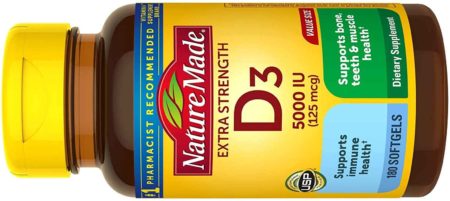Gargle test, statin power, a kiwi a day keeps the gastroenterologist away, and more
29 Oct 2020
Posted by Andrew Kantor
“Long Covid”
“Having more than 5 coronavirus symptoms is a sign you could be at risk of a long-term case, new research shows.” And if you have these five in particular, it’s even more likely: fatigue, headache, difficulty breathing, a hoarse voice, and muscle or body aches.
Our number two story
Prunes, schmunes — if you want to treat constipation, you want kiwis. (To be clear: the fruit, not the bird.)
“Two peeled kiwi fruit per day improved chronic constipation while being better tolerated than other traditional natural remedies,” according to University of Michigan researchers.
Of the participants who received kiwi, 0% reported abdominal pain or gas compared with 18% for both in the prunes group and 33% pain and 19% gas in the psyllium group.
Stool consistency improved with kiwi and prunes and straining significantly improved with kiwi, prunes, and psyllium. Adverse events were most common with psyllium and least common with kiwi. At the end of treatment, a smaller proportion of patients were dissatisfied with kiwi compared with prunes or psyllium.

Of course we’d have some bad news today
In case, for some reason, you thought otherwise — the pandemic is getting worse. Much worse. The Midwest is being hit hardest, but the entire country is seeing a surge in cases, a surge in hospitalizations (with some rural hospitals running out of space), and, soon, a surge in deaths.
Just in the last week, in fact the U.S. had a record number of cases — nearly half a million, and at least 5,600 have died.
And if you think it’s because of more testing … no. Hospitalizations have risen 46 percent in the past month; right now, about 46,000 people are hospitalized with Covid-19.
HHS: Techs will be able to give Covid-19 vaccine
If and when one is ready to distribute to the teeming millions, HHS said that it will allow pharmacy techs to give it — subject to certain requirements, of course. We’ll give you the details when the time comes.
Of note, for non-Georgians: Some states don’t require techs to be licensed or registered. In those cases, HHS says, to be allowed to vaccinate, those techs “must have a Certified Pharmacy Technician (CPhT) certification from either the Pharmacy Technician Certification Board or National Healthcareer Association.”
Zapping cancer faster, better
Researchers from Switzerland and the University of California have treated brain tumors in mice with radiation … but without side effects. The trick? The same dose, but concentrated.
Traditional radiation therapy exposes a tumor and nearby normal tissue to radiation for several minutes at a time, but FLASH radiation therapy (FLASH-RT) allows delivery of the same dose in only tenths of seconds. The speed eliminates many of the toxicities that normally plague cancer survivors long after radiation treatments, significantly decreasing side effects such as inflammation and impairments to cognition.
Vitamin D — again
The headline speaks for itself: “Study finds over 80 percent of COVID-19 patients have vitamin D deficiency“.

Statins vs colorectal cancer
A new meta-study out of NYU found that statins are linked to a 20 percent lower colorectal cancer risk. Oh, and if you have inflammatory bowel disease, how’s a 60 percent reduction sound?
Caveat, of sorts: This is a meta-analysis of 52 studies, so — wait for it — more research is required. (On the other hand, it did take into account more than 11 million patients.)
Don’t swallow
When it comes to Covid-19 tests, nasal swaps (as fun as they may be) are so last month. And saliva tests? Sooooo last week. What’s up next: the gargle test, courtesy of a University of Arizona virologist. That is, swish and gargle a special mouth rinse, spit it into a specimen cup, and run a test.
[T]he mouth rinse test is more sensitive than a nasopharyngeal swab test. It also appears to be considerably more sensitive than a test based solely on saliva samples, where test subjects simply spit into a cup. [Possibly] due to the fact that virus particles are pulled from the throat during the gargle phase in addition to the saliva collected during the mouth rinse procedure.
Why COPD won’t go away
Even when people stop smoking, those with COPD find that the inflammation doesn’t go away. It should, so what’s up? It’s genetic. With COPD, cigarette smoke has ‘reprogrammed’ the cells of their lungs so they don’t produce enough of an antibody called secretory IgA.
In patients with COPD, lower levels of the polymeric immunoglobulin receptor and secretory IgA allow bacteria easier access to the airway surface, triggering an inflammatory response that persists after the patient quits smoking.
That causes another domino to fall: “increased numbers of a relatively uncommon type of cell called monocyte-derived dendritic cells, or moDCs,” which trigger an immune response … and inflammation.
The good news: The discovery of these moDCs might open a new pathway to treatment.
Speaking of smoking…
The younger you start, the greater your risk of “CV mortality.” (And the younger you are when you quit, the more you lower your risk.)


